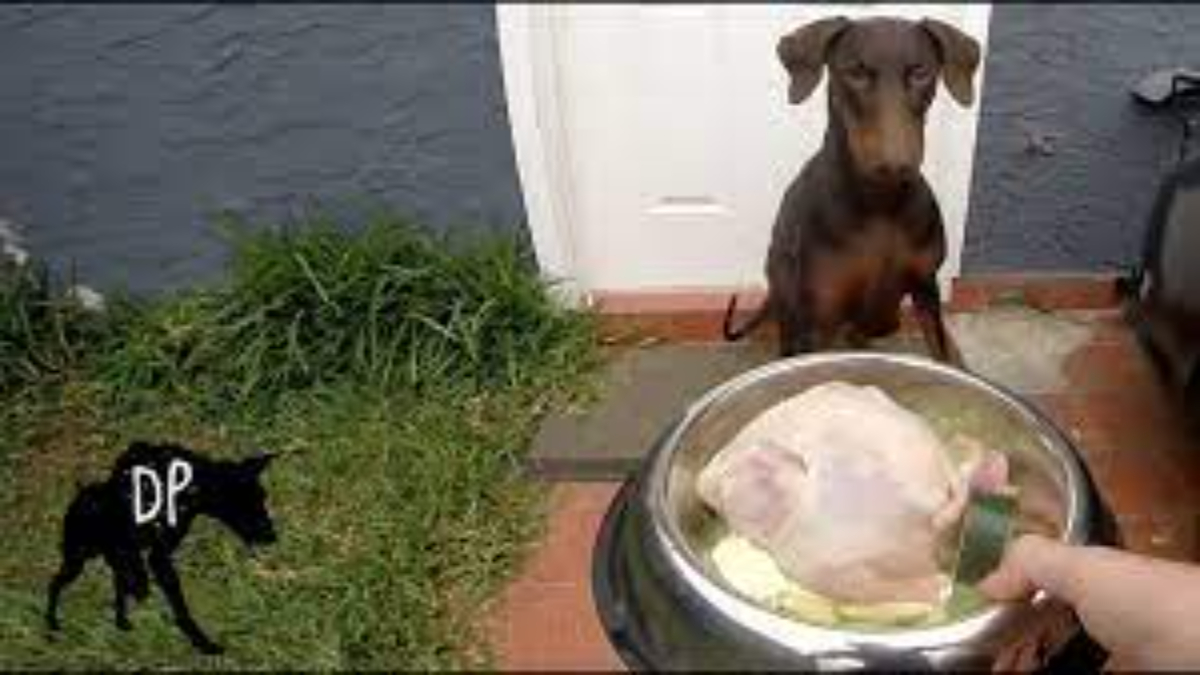In pet ownership, looking out for our dogs’ health and welfare is crucial. Knowing which foods are suitable and safe for our dogs to eat is essential to this duty. One of the many foods people eat that frequently spark curiosity is the Cornish hen, a delicacy many enjoy. But can dogs also savor this treat? This choice directly impacts our pets’ health and lifespan, so determining if Cornish hens are suitable for dog food is more than curiosity. Learn more about this topic on Pets Care Insiders.
One cannot stress how crucial it is to know what foods dogs can eat. We consider dogs to be members of our families, not just our companions. We must treat our furry friends with the same consideration that we give to our foods’ nutritional content and possible hazards. Food choices we make for our dogs can significantly impact their health, from promoting healthy growth and development to lowering their risk of obesity and certain diseases. As a result, responsible pet ownership requires knowing what foods are suitable and safe for dogs.
Can dogs eat Cornish hens?
The Cornish hen is a small breed of chicken known for its flavorful and tender meat. It is frequently preferred because of its smaller size, which makes it ideal for single servings. Cornish hens are small chickens usually picked at five weeks of age and used in various recipes.
Nutritional value of Cornish hen
The protein, vitamins, and minerals that Cornish hens are high in are vital for human and canine health. They have high-quality protein, which is essential for building muscle and maintaining general health. They also offer vital nutrients that support a well-rounded diet, such as iron, zinc, and B vitamins.
Consideration of dog’s dietary needs
Dogs’ dietary requirements must be considered when determining whether they can consume Cornish hen. Due to their primary carnivorous nature, dogs need a diet high in protein from animals. But they also gain from a well-balanced diet rich in fats, carbohydrates, vitamins, and minerals. A dog’s diet should consist of various foods that fulfill their nutritional needs, even though Cornish hens can help increase their protein intake.
Potential benefits and risks of feeding Cornish hens to dogs:
Dogs may benefit from eating Cornish hen because it provides vital nutrients and high-quality protein. But there are other dangers to think about. Certain dogs may exhibit gastrointestinal problems or skin reactions due to allergies or sensitivities to poultry, including chicken.
Moreover, giving a lot of Cornish hens or adding bones could cause gastrointestinal obstructions or choking hazards. Because of this, it’s crucial to gradually and moderately add Cornish hen to a dog’s diet, carefully considering preparation techniques and possible allergens. It is best to speak with a veterinarian about any dietary concerns and confirm that the Cornish hen is a good fit for your dog.
Considerations for Factors of dogs eat Cornish hens
- Breed and size of the do
The dog’s breed and size are essential in determining its dietary requirements and food tolerance. While smaller breeds might need smaller servings, larger breeds can handle more significant portions of Cornish hen. Furthermore, when adding a Cornish hen to a breed’s diet, it’s essential to consider any special dietary needs or sensitivity issues that may apply.
- Techniques of preparation
The suitability for dogs can vary depending on how the Cornish hen is prepared. Avoid marinating or seasoning meat with things toxic to dogs, like onions or garlic. Instead, use straightforward cooking techniques like boiling, grilling, or baking instead of adding extra fats or oils. Before serving, remove any bones, as they can be a choking hazard or cause gastrointestinal problems if consumed.
- Controlling portions
When giving a Cornish hen to a dog, it’s important to watch portion sizes, just like with any new food. Small portions at first, and watch your dog’s reaction. To ensure a balanced and healthful diet, keep an eye on their weight and modify the serving size accordingly. Cornish hens shouldn’t be fed in excess, which may cause nutrient imbalances or upset stomachs.
- Sensitivity and allergy
Chicken is one of the foods that dogs, like people, can become allergic to or sensitive to. After consuming Cornish hen, watch for indications that your dog is experiencing allergic reactions or abdominal problems. In dogs, food allergies frequently manifest as itchiness, redness, swelling, vomiting, diarrhea, or behavioral abnormalities. A veterinarian can provide more information and advice on appropriate dietary substitutes if you think your dog might be allergic to or sensitive to Cornish hens.
Cornish Hen Substitutes for Dogs
A. Suggested meats for dogs:
1. Lean cuts of chicken
2. Turkey
3. Beef
4. Lamb
B. Grain and vegetable combinations good for dogs:
1. Carrots
2. Green beans
3. Peas
4. Sweet potatoes
5. Brown rice
6. Quinoa
C. Commercial dog food options:
1. Dry kibble
2. Wet canned food
3. Freeze-dried or raw diets
Veterinary Dietary Advice of dogs eat Cornish hens
Consulting a veterinarian for dietary advice is essential to maintaining your dog’s health. Veterinarians can provide customized guidance based on your dog’s breed, age, weight, and any underlying medical issues. Their knowledge ensures your pet grows well on a balanced diet by preventing nutritional deficiencies, allergies, and weight-related problems.
Conclusion
Although Cornish hens can provide dogs with a high-quality source of protein and essential nutrients, it’s vital to gradually incorporate them into their diet. Potential risks like allergies and bone hazards, as well as aspects like portion control, preparation techniques, and individual dietary needs, must be considered, Dogs eat Cornish hens. Seeking advice from a veterinarian guarantees ethical feeding procedures and protects our dogs’ health and welfare.
